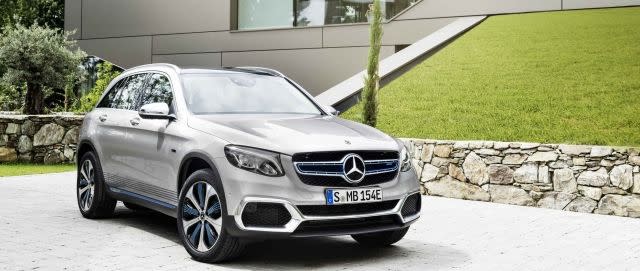Daimler still developing hydrogen fuel cell tech
It would be easy to assume the future of the motor industry is signed, sealed and delivered into the hands of battery-electric vehicles, but it appears a number of major players are possibly not one hundred percent convinced that it's such a done deal. Mazda is vigorously pursuing ever-more efficient internal combustion engines, and it now turns out that Daimler is hedging its bets by continuing to work on hydrogen fuel cell technology.
Although the company hasn't been as forthcoming with fuel cell vehicles as the likes of Honda and Hyundai have been, it did bring us the Mercedes-Benz GLC F-Cell crossover at last year's Frankfurt motor show. The GLC F-Cell utilizes a combination of battery and hydrogen fuel cell technology to create what's basically a plug-in hybrid vehicle that gets the majority of its range from hydrogen. It's still basically an electric vehicle, but the hydrogen is used by the fuel cell to generate electricity, which then drives the wheels.
Despite there being quite a buzz around fuel cell technology a couple of years ago when Honda was pushing the Mirai, it's definitely been edged into the background by EVs, hybrids and plug-in hybrids more recently. Even Daimler has stated it expects around 25 percent of its global sales will be made up from battery electric vehicles by 2025, so it does raise the question of why it's still investing a considerable amount of money in fuel cell technology.
Ola Källenius, the Daimler board member in charge of research and development, explained, "We will scale, in terms of going into tens and hundreds of thousands of production, the battery-electric vehicles first. But we will keep the fuel cell in development, so we have this technological option should there be a shift in the market in this direction."
For the moment at least, it seems Daimler sees larger vehicles as the potential beneficiaries of hydrogen fuel cells due to the greater energy density they have over battery-electric vehicles.
Källenius added, "It's conceivable that the next generation of fuel cells could go into a bus instead. In the winter, heating the bus requires a lot of energy, and a combination between an electric drive and a fuel cell could be a better option."



